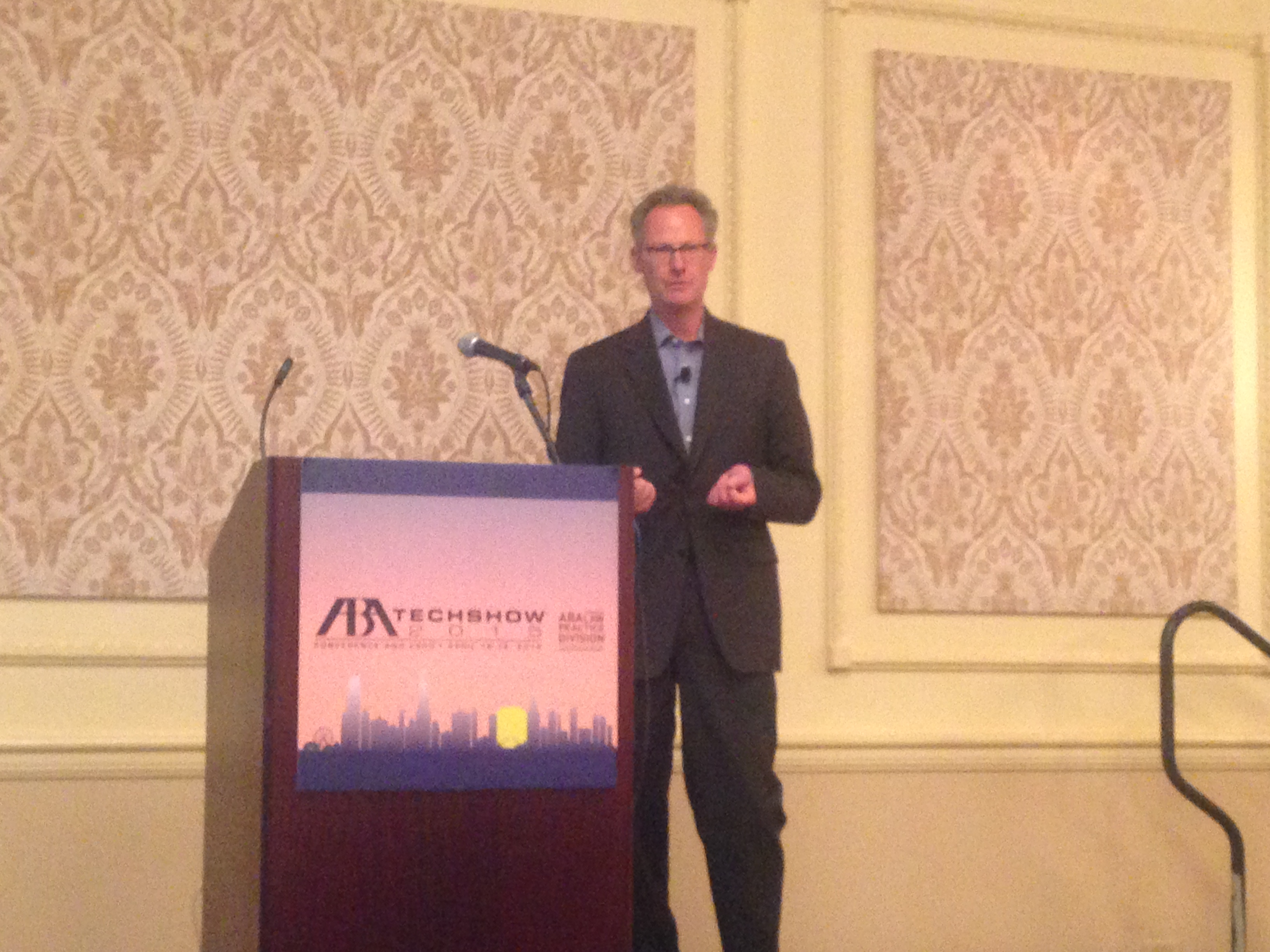ABA Techshow: Keynote speaker Nicholas Carr

Nicholas Carr’s keynote at ABA Techshow was one part history refresh and one part warning how technology is making us stupid.
He began his talk by spending some time putting the cloud into a broader context in order to set the stage and show the audience what might be coming in the future. He started by looking backwards, all the way back to 1850 when Henry Burden built the water wheel, then to the creation of in-house power in 1900. He then jumped to 2000, showing a slide that illustrated computing was just a big mess of wires. Suddenly, companies had to invest in complex and expensive “machine readers” on staff, even if it wasn’t central to their main areas of business. Now today, “computing” is all housed in a major data center.
Where things got interesting, according to Carr, was once the new utility system was in place, or the “invisible grid,” as he called it. It changed the way people live, by being able to plug in appliances, and be entertained by things like radios and films in movie theatres. The invisible grid allowed for electric lighting, which altered concepts of day time and night time and how we live within those timeframes (being able to enjoy live entertainment at night, for example, and not having to do everything within the confines of day time hours). Eventually, what happened, according to Carr, was that technology became invisible and more people took it for granted.
So what will happen from here on out? Deep automation, said Carr. “We can increasingly use computers to replicate what we as human beings used to do ourselves,” he said, mentioning the Google self-driving car as an good example. “It may not do everything a human driver can do, but it’s pushing the boundaries of what computers can do.”
This deep automation is also transforming industries and professions, according to Carr. Here he cited an automated lettuce picker, which doesn’t require much human involvement and is transforming agriculture. We have more robotic computer-controlled systems which are transforming professions through algorithms. “There is a gap between humans and computers and what can be done,” Carr said. “But that gap exists further out than what a lot of us assume.”
And in terms of the legal profession, Carr notes: “There will be tension between computers moving into more and more sophisticated areas of the law in the years ahead.”
Carr concluded his keynote by going through the opportunities presented by this deep automation:
- An automation of tacit skills (pilots, drivers, soldiers, etc.)
- An automation of intellectual skills (law, medicine, finance, management, etc.)
- An automation of creative work (architecture, design, programming, etc.)
- A more efficient orchestration of commerce
- A radical reduction in labor costs, with a concentration of profit.
He then addressed the risks:
- Job loss and wealth inequality
- Privacy, confidentiality, security
- Catastrophes
- Myriad legal questions
- Loss of human skill.
So what’s left for people? We are losing human expertise, which results in quality problems, according to Carr. He cited the automotive industry as evidence of this.
He concluded by addressing what happens to our minds and brains when we look at screens all day. It’s a mixed blessing, said Carr. “We have the practical advantages of being connected, but we are slaves to the device. All our conversations are being mediated through computers.”
He called this practice “compulsive consumption,” and cited some alarming statistics:
- Web pages are viewed for less than 10 seconds
- People take 30 to 40 email inbox glances an hour
- 3,300 teen texts a month
- Mobile devices are checked 150 times a day
- Distractions are cumulative.
“We’ve created an environment of constant distraction and we’ve lost the ability to think about one thing for an extended period,” Carr said. “Our deepest forms of thought only happen when we are paying attention. But we can’t tune out distractions.”
This results in cognitive overload, which is the brain’s bottleneck from being connected all day. The cost of this distraction has long-term effects on brain behavior. So how do we protect deep thought in a distracted age? That remains to be seen.